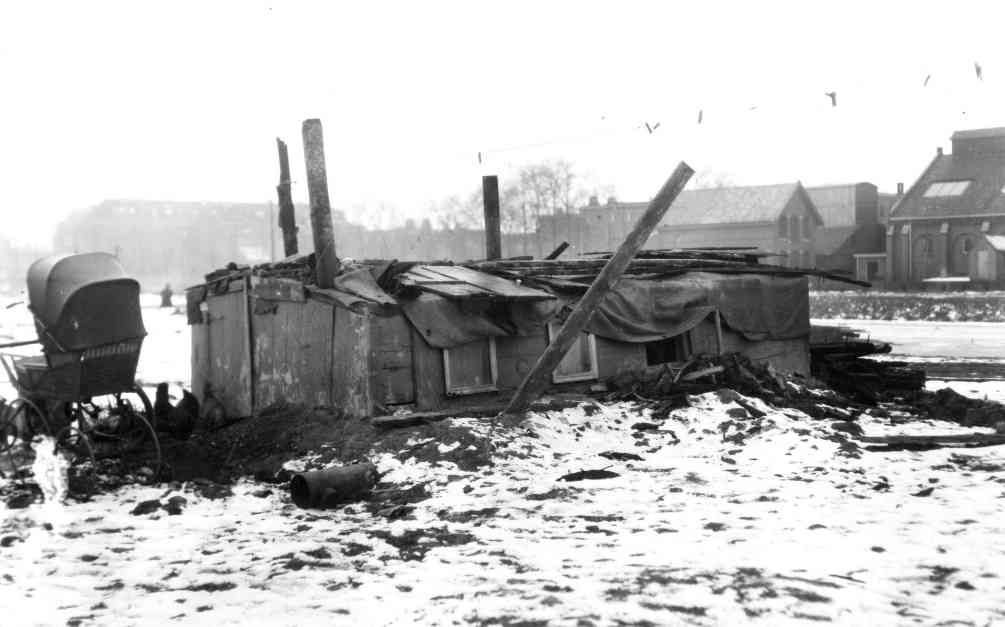The housing shortage in the Netherlands is high. Just like a century ago. This led to heartbreaking situations in Grunn. Check out these slum houses. At that time, six people were living there. A. Mulder, his wife, and children aged five, three, and two years old. And a baby. That’s why there’s a baby carriage in the photo. They are staying in the cabin of their sunken ship that winter. Some sails, loose planks, and sod form the roof. The total living space is less than six square meters. Inside, there are a few chairs, a table, a small cupboard, and a single bed. The entire Mulder family sleeps in that bed. Often all six of them at once. It’s been at least five months now. They have already survived the harsh winter of 1923/24.
The Municipal Housing Department, established to provide good and affordable public housing to the working class, promised Mulder and his family a decent house a while ago. But the housing shortage was high in the twenties, also in Groningen. Due to industrialization, urbanization, and longer life expectancy due to better hygiene and advances in healthcare, there were not enough houses available. A problem that has not been solved even a century later. Departing Minister Hugo de Jonge (Housing) recently made it clear that he is aiming for large-scale new construction in the north, east, and south of the country. Since it takes about ten years for a new residential area to be put into use, according to De Jonge, things need to move quickly. Otherwise, housing shortages will continue to pile up.
The photos speak for themselves. Just ask the Mulder family on Singelweg in the Korrewegbuurt in 1924. Their situation is so dire that the Nieuwsblad van het Noorden visited on June 12, 1924. The reporter was dumbfounded when he saw how primitive the family was living. ‘When you enter the door, you notice that the ground in the hut is dug out. (…) The photos do not need any commentary. They speak for themselves.’
And Mulder, his wife, and four children are not even the worst off among the residents of Singelweg. That’s what a reporter from the social democratic weekly De Tribune concluded after a visit following the sensational publication in Nieuwsblad van het Noorden .
The surroundings of Singelweg have changed beyond recognition over the years. On the other side of the water, the huge and iconic gas factory at the Circus-, Boden, and Gastterein (CiBoGa) became obsolete in the sixties due to the discovery of natural gas in Slochteren. After the demolition, the site stood empty for a while but now it is filled with modern high-rise buildings.
But even now there is a housing shortage in Groningen. Just a stone’s throw away from Singelweg, 81 houses are soon to be put up for sale on Oosterhamrikkade, it was recently revealed. Due to large city villas and apartments making way for smaller homes, according to project developer VanWonen, more space is created for the construction of affordable housing.
For A. Mulder, his wife, and four children from Singelweg, this news comes a hundred years too late.

